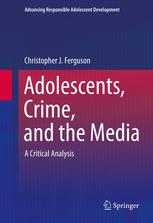

Most ebook files are in PDF format, so you can easily read them using various software such as Foxit Reader or directly on the Google Chrome browser.
Some ebook files are released by publishers in other formats such as .awz, .mobi, .epub, .fb2, etc. You may need to install specific software to read these formats on mobile/PC, such as Calibre.
Please read the tutorial at this link: https://ebookbell.com/faq
We offer FREE conversion to the popular formats you request; however, this may take some time. Therefore, right after payment, please email us, and we will try to provide the service as quickly as possible.
For some exceptional file formats or broken links (if any), please refrain from opening any disputes. Instead, email us first, and we will try to assist within a maximum of 6 hours.
EbookBell Team

0.0
0 reviewsA campus shooting. A gang assault. A school bus ambush. With each successive event, fingers are pointed at the usual suspects: violent films, bloody video games, explicit web sites. But to what extent can—or should—the media be implicated in youth crime? And are today's sophisticated young people really that susceptible to their influence?
Adolescents, Crime, and the Media critically examines perceptions of these phenomena through the lens of the ongoing relationship between generations of adults and youth. A wealth of research findings transcends the standard nature/nurture debate, analyzing media effects on young people's behavior, brain development in adolescence, ways adults can be misled about youth’s participation in criminal acts, and how science can be manipulated by prevailing attitudes toward youth. The author strikes a necessary balance between the viewpoints of media providers and those seeking to restrict media or young people's access to them. And the book brings scientific and intellectual rigor to culturally and politically charged issues as it covers:
Adolescents, Crime, and the Media is an essential resource for researchers, graduate students, professionals, and clinicians across such interrelated disciplines as developmental psychology, sociology, educational policy, criminology/criminal justice, child and school psychology, and media law.